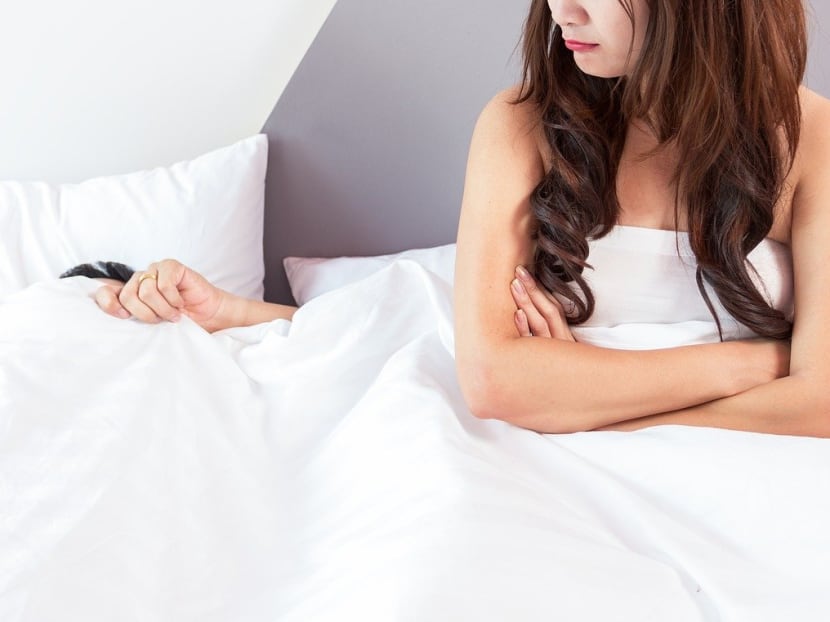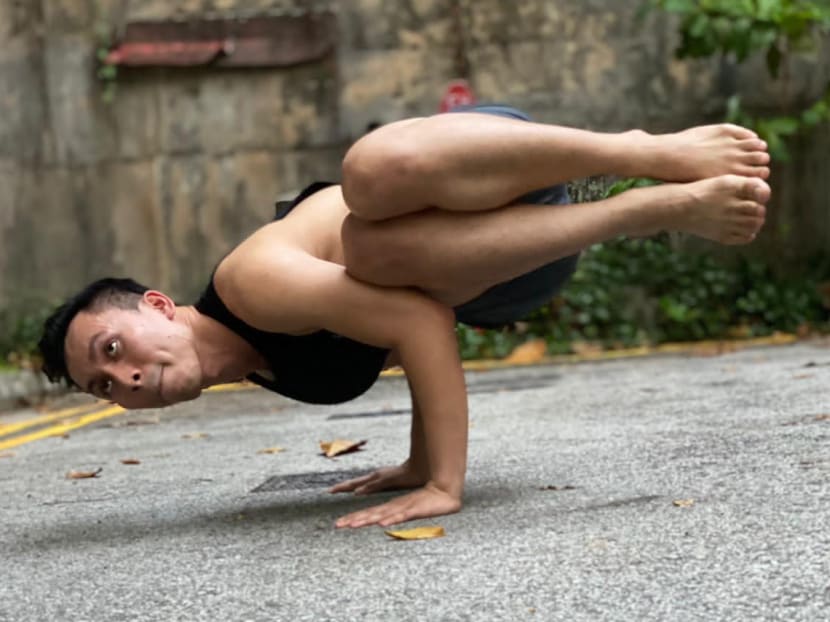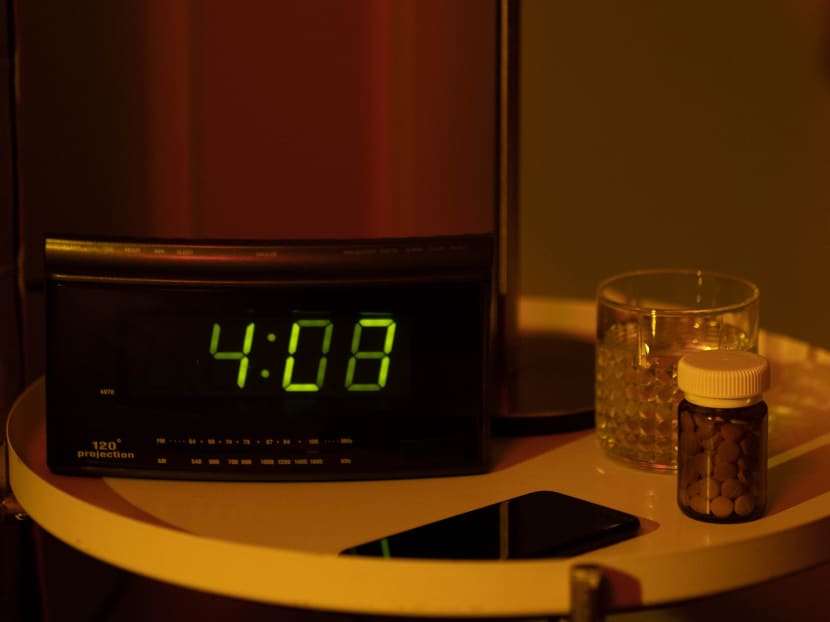Sleep habits of Singapore doctors: What we can learn from their attempts to get a better night’s rest
SINGAPORE — Doctors often talk about the importance of a good night’s rest, but they sometimes have trouble getting enough of it themselves. Some of them have confessed to going without sleep for more than a day or surviving on few hours of sleep due to work and family commitments.

Clockwise from top left: Dr Shariff Rizwan, Dr Kenny Pang, Dr John Wang and Dr Kim Lian Rolles-Abraham with her children.
SINGAPORE — Doctors often talk about the importance of a good night’s rest, but they sometimes have trouble getting enough of it themselves.
Some of them have confessed to going without sleep for more than a day or surviving on few hours of sleep due to work and family commitments.
Four medical practitioners told TODAY of their sleep habits, and how past experiences dealing with sleep deprivation have shaped better bedtime routines.
NOT IDEAL BUT NOT SLEEP-DEPRIVED
Surgeon John Wang, 49, has no trouble falling asleep anywhere and at any time whenever he needs to do so. He is also able to sleep through noise, lights, movements and other things that people may find disruptive at night.
“I am fortunate to be an excellent sleeper. All my years of surgical training, having to do in-hospital on-calls, have inculcated an indiscriminate sleep robustness,” he said.
Dr Wang is a vascular and general surgeon who practises at Mount Elizabeth Hospitals in Singapore. He is also medical director of Advanced Vascular and Endovascular Clinic, and a visiting consultant at PanAsia Surgery.
On average, he gets around six hours of sleep each day but squeezes in an extra hour of sleep on Sundays. He knows that it is not an optimal amount of sleep but he does not feel sleep-deprived, he said.
The National Sleep Foundation in the United States recommends that adults, in general, should get between seven and nine hours of sleep a night.
Dr Wang said: “I always wish I can get more sleep but have gotten accustomed to functioning well with the sleep I get presently. When I am on vacation, I allow myself more sleep time.”
He usually feels refreshed in the morning, though there are exceptions, such as after pulling late nights.
“(People may think) I was out partying but at my stage, it's about continuous medical education, doing the mandatory reading and passing the re-certification exams yearly (with the American Board of Surgery),” he said.
As a surgeon who has regular clinic hours and who covers on-call emergencies at night, Dr Wang has had to go without sleep for long stretches of time due to work, sometimes for more than a day.
“The direct effect is physical fatigue, and the secondary sequela is marked intolerance to nonsense from the people around. It doesn't affect clinical judgement as much, but draws heavily on impatience.”
On regular work days, he has a bedtime routine to help him wind down.
“I watch some boring television programmes, read a medical textbook or watch some silly videos — something that is completely different from what I've been doing all day.
“I also make it a point not to eat dinner too late, not eat too full a meal and avoid caffeine-rich foods like coffee or tea close to bedtime,” he said.

Other golden rules include no sports and chocolate cake just before bedtime, and never going to bed upset with the spouse and vice-versa, Dr Wang added.
He advised Singaporeans, who are among the most sleep-starved in the world, to give their body sufficient rest.
“I think Singaporeans are very high-strung and stressed, and I can understand why. It is okay to stop worrying about things for a couple of hours and get recharged with sleep so that you can handle tomorrow in full vigour,” he said.
“Understand your mind and body, and give it what it needs — rest. It can be a cup of milk or listening to your favourite music. Invest the time for it and your batteries will be fully charged.”
STICKING TO REGULAR EXERCISE
As a student and young doctor, Dr Shariff Rizwan was constantly sleepy during the day and could not fall asleep despite feeling tired.
Due to his daytime sleepiness, he had to be on medications for some time to help him stay awake.
In secondary school, getting only three to four hours of sleep during the examinations period was “the norm” for him.
“It didn’t help that I was surrounded by people who told me that (three to four hours of sleep each day) was enough. How silly I was to believe that,” the 30-year-old recalled.
When Dr Shariff first started his medical career as a House Officer, which is a first-year doctor under probation, he would sometimes work 24 to 30 hours non-stop.
Thankfully, his sleep-deprived days are over. These days, Dr Shariff, now a family physician at Dr Tan and Partners (DTAP), goes to bed by 11pm and gets up at around 6am.

He throws in a quick workout before starting his work day, which involves attending to patients with a range of medical conditions such as viral infections, chronic ailments including diabetes, as well as those related to sexual health.
Occasionally, he provides medical care to patients with palliative care needs.
Although his bedtime hours may change on weekends, he ensures that he gets around seven hours of sleep every day.
“Given my struggles in the past with sleep, I am very happy with the current amount of sleep that I have these days. It took a lot of planning and prioritising things in my life to have better sleep hygiene.
“Regular exercise and a balanced diet have allowed me to gain more restful sleep and remain more alert in the daytime without the use of prescription medications.”
Dr Shariff has a daily yoga practice for improved sleep. “Besides the apparent physical benefits, it allows me to slow my mind down, leading to better sleep.”
However, it is also important to listen to your body and choose the right type of exercise at different times of the day, he added.
For example, he might opt for a more static form of yoga such as restorative or light Hatha yoga that features holding of poses in the evening. He keeps the intensive and dynamic forms of yoga that feature more movements such as Ashtanga or Vinyasa for the earlier part of the day.
Some people may blame excessive screen time for lack of sleep, but Dr Shariff believes that using the right digital resources may sometimes help promote better sleep at night.
“I’ve used interactive shows on Netflix like Headspace: Unwind Your Mind and listened to podcasts for guided meditation about an hour before my intended sleep time.”
Poor sleep has a knock-on effect on many aspects of life, including physical, mental and sexual health. He encourages people to try to get their sleep routine right even though it may be difficult at first.
“Every bit of effort that you put in to improve your sleep hygiene is going to slowly yield results.”
FOR PARENTS: CAT NAPS AND ACCEPTING HELP
Dr Kim Lian Rolles-Abraham once stayed awake for two whole days (yes, for 48 hours) while writing her doctorate thesis.
The first thing she noticed about her sleep-starved state was that she was more irritable and less “present”.
“I felt like I was in a daze after that and found it difficult to register what others said to me, and I noticed myself making many more mistakes. I definitely don’t recommend doing that.”
These days, Dr Rolles-Abraham, who is in her 30s and a mother of three, struggles with another form of sleep deprivation.
Now that she has to juggle work and three toddlers aged one, three and four years old, her wish is to have uninterrupted sleep at night.
Presently, she gets an average of six hours of broken sleep every day and does not have a regular bedtime.
Depending on how tired she is or the time taken for her children to fall asleep, she may doze off while putting them to bed.
She practises co-sleeping with her toddlers, who often wake her at night for various reasons — for milk, to cover them with the blanket, for a hug when they have a nightmare or are afraid of the thunder, for example.
“It’s not ideal but with three young kids, I would say six hours of interrupted sleep is pretty decent. I cope with the sleep deficit by catching quick naps whenever time permits, and also with caffeine while I’m at work.”

Over the years, Dr Rolles-Abraham has learnt to squeeze in more shut-eye with a few strategies.
“If sleep-deprived mums can accept help or delegate tasks to others so as to catch more shuteye, that would be ideal.
“I struggled with letting go of ‘mothering’ when my first child was a newborn but soon learned to hand her over to willing help, sometimes in the form of close friends, so that I could get an extra hour or two of sleep.”
Another tip for working parents to get a bit more sleep the next morning is to multi-task the night before.
“For example, I try to clear some emails and connect with friends over text messaging while in a taxi. I also try to get some exercise in while taking the kids to the playground.”
It is also important for busy parents to prioritise rest and accept that they cannot do everything perfectly.
“Accept that some things have got to give. This also means drawing boundaries and saying ‘no’ to doing some things that are not absolutely necessary,” she said.
“Additionally, don’t compare with other families. Figure out what works for you and your family and honour that.
“The stress of comparison can result in you wanting to do too many things or unhelpful things that ultimately result in less rest.”
SLEEP AND WAKE AT THE SAME TIME EACH DAY
Sleep expert Kenny Pang, 51, an ear, nose and throat specialist in private practice at Asia Sleep Centre, takes his own advice to patients very seriously.
Despite his busy work schedule, his sleep-wake routine operates like clockwork.
He goes to bed at around 10.30pm to 11pm and wakes at 6.30am to take his children to school, before getting ready for his ward rounds at the hospital and his clinic sessions.
As a result, he hardly ever wakes up feeling unrefreshed, which may seem like a luxury to many people.
Dr Pang said that it is best to go to bed at around 11pm and wake at around the same time daily, around 7am. This allows the mind and body a chance to rest properly.
Melatonin, the sleep hormone, is produced from the pineal gland in the brain at around 11pm and peaks around midnight to 1am, before it starts to decrease by 4am to 5am, he explained.
NIGHT-SHIFT WORKERS: IRREGULAR SLEEP 'CONFUSES' BRAIN
Dr Pang said that melatonin levels may vary from person to person but it is mostly produced at night.
For night-shift workers, melatonin will still be produced at night and if this continues for the long term, then their melatonin levels would be quite low at night.
Some studies showed a drop of 30 to 50 per cent in melatonin levels in long-term shift workers.
Lower melatonin level has been linked to poor sleep quality and sleep deprivation. This may lead to low morale and low mood, anxiety and irritability. Some studies have associated it with hypertension and heart disease, Dr Pang said.
“Because we live in a very fast-paced society and with the advent of gadgets, people are very prone to sleeping very late and at irregular hours.
“This means that some nights, they sleep at 5am to 6am and wake at 1pm to 2pm; other nights, they don’t even sleep at all either because of work or due to their gadgets, watching movies, gaming, etc.”
Dr Pang explained that such irregular sleep hours can be “very confusing” for the brain.
As a result, many people develop something called “delayed sleep phase syndrome”, where they find it harder and harder to fall sleep at a normal hour like 11pm as melatonin is no longer released.
“They get very anxious and frustrated, and might develop anxieties about not sleeping, causing them to even not sleep, creating a vicious circle. Some may even develop depression,” he said.

Dr Pang said that melatonin levels can become “a little haywire” even in people working consistent, regular night shift hours. He advised them to keep to a regular sleep-wake routine and avoid stimulants that affect sleep such as alcohol, smoking and too much caffeine.
As for shift workers with no choice but to sleep at different timings over the work week, Dr Pang said that taking melatonin tablets may help.
The usual good sleep hygiene habits, such as not scrolling through social media before bedtime, avoiding caffeine too near their sleep hours and getting regular exercise, may also help them improve sleep quality.
GETTING ENOUGH SUNLIGHT
Even when he was a medical student and junior surgeon and had to stay up late to study, Dr Pang would keep his study hours to around midnight — latest, 1am if necessary.
“By then, you’ll be so tired that you fall asleep before your head touches the pillow.”
To get good quality sleep these days, Dr Pang abides by a few other rules such as getting sufficient sunlight in the day and exercising three to four times a week. He plays tennis, jogs and cycles 80km to 150km every week.
Regular exposure to outdoor or bright light during the day allows the mind and body to be aware of day and night, he added.
He avoids caffeinated drinks after 2pm and exercising within three hours of bedtime to avoid ramping up his metabolic rate, which can affect his ability to fall asleep.
“I avoid light-emitting devices an hour before sleep because blue light stimulates the brain and affects sleep quality.
“I also avoid drinking too much water two hours before sleep because I don’t want to wake up to pee,” he said with a laugh.






